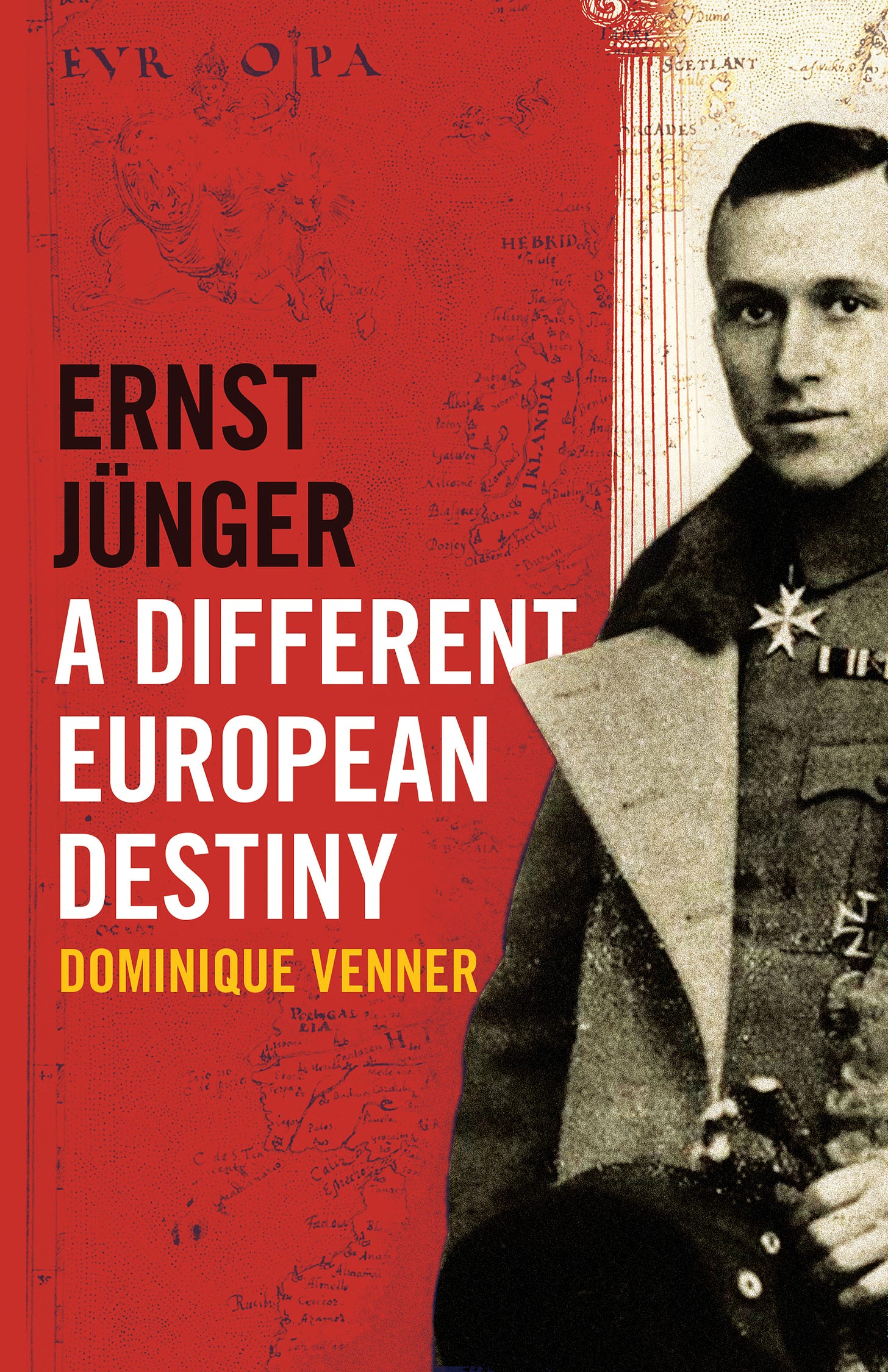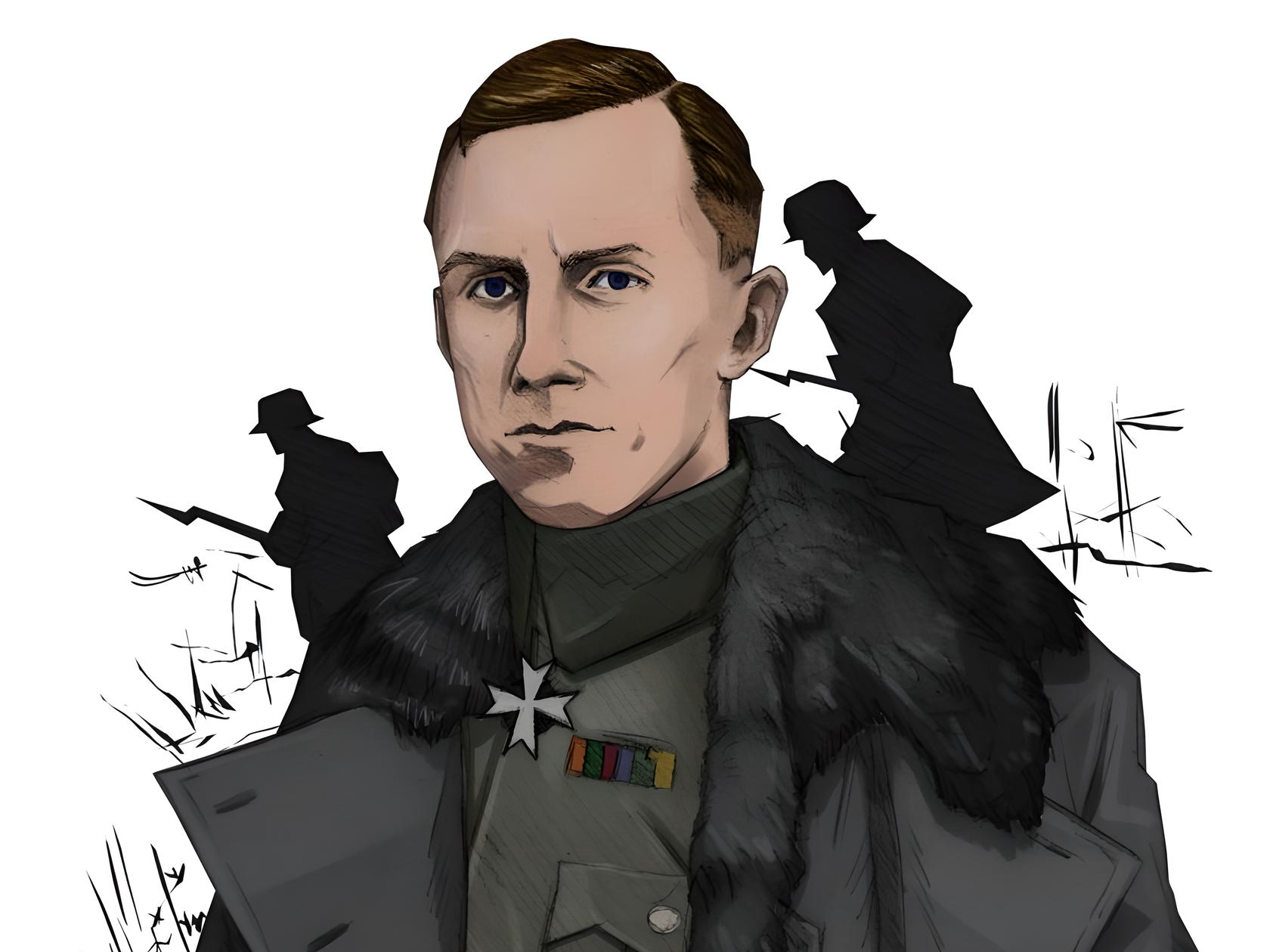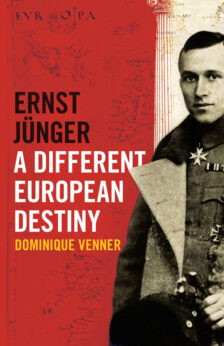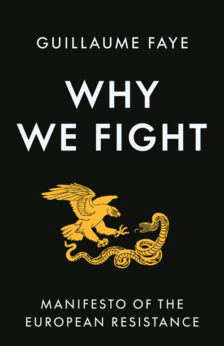Ernst Jünger: A Different European Destiny offers an insightful exploration of one of the 20th century’s most fascinating literary and intellectual figures. In this engaging biography and analysis, historian Dominique Venner traces Ernst Jünger’s remarkable life and ideas, presenting him as an exemplar of European identity and destiny.
Venner skillfully weaves together Jünger’s personal experiences, literary works, and philosophical evolution against the backdrop of Europe’s turbulent 20th-century history. The book provides a nuanced portrait of Jünger as a man who lived through and bore witness to the defining events and ideological struggles of his era, from World War I to the Cold War and beyond.
One of the book’s great strengths is how it situates Jünger within the broader intellectual currents of his time, particularly the Conservative Revolutionary movement in Weimar Germany. Venner offers illuminating context on thinkers like Arthur Moeller van den Bruck, Oswald Spengler, and Carl Schmitt, helping readers understand the milieu that shaped Jünger’s early nationalist and anti-liberal views. At the same time, he traces how Jünger’s thought evolved and diverged from many of his contemporaries, especially in his opposition to National Socialism.
The sections on Jünger’s experiences in World War I are particularly vivid and insightful. Venner draws extensively on Jünger’s war diaries and memoirs like Storm of Steel to convey the transformative impact of the conflict on the young soldier-writer. He offers a perceptive analysis of how the war shaped Jünger’s literary style and philosophical outlook, forging his stoic ethos and “heroic realism.” Venner compellingly argues that the war was the crucible that formed Jünger as both a writer and thinker.
One of the book’s most valuable contributions is its exploration of Jünger’s complex relationship with French culture and intellectuals. Venner details Jünger’s Francophilia and his friendships with figures like Georges Bernanos and Jean Cocteau during the German occupation of Paris. This offers a fascinating window into the cultural exchanges between French and German thinkers even amidst the upheavals of war. Venner persuasively presents Jünger as a bridge between French and German intellectual traditions.
The author provides insightful close readings of many of Jünger’s key works, from his early war writings to later novels like Heliopolis and Eumeswil. Venner traces the evolution of Jünger’s thought through these texts, showing how the author grappled with the challenges posed by technology, totalitarianism, and post-war nihilism. His analysis of On the Marble Cliffs as an allegorical critique of National Socialism is particularly astute.
Importantly, Venner does not shy away from the more controversial aspects of Jünger’s career and views. He offers a balanced assessment of Jünger’s involvement with nationalist and revolutionary conservative circles in the 1920s, as well as his initial ambivalence toward the National Socialist regime. The book provides important context to understand these positions without excusing or whitewashing them. Venner persuasively argues that Jünger’s opposition to National Socialism stemmed from his aristocratic ethos and rejection of totalitarian uniformity rather than liberal democratic principles.
One of the book’s central arguments is that Jünger embodies a distinctly European spirit and destiny that transcends national boundaries. Venner sees Jünger’s life and works as an expression of core European values: the drive for excellence and self-overcoming, respect for tradition combined with openness to the new, and a tragic yet life-affirming worldview. He presents Jünger as a counterpoint to the nihilism, materialism, and loss of identity that he sees afflicting contemporary Europe.
The sections exploring Jünger’s later development of the figure of the “Anarch” are particularly thought-provoking. Venner insightfully unpacks this concept as Jünger’s response to totalitarianism and mass society — a vision of inner freedom and sovereignty in an age of conformity. He persuasively argues that the Anarch represents a distinctly European ideal of the self-possessed individual who participates in society while maintaining spiritual independence.
Venner’s admiration for his subject is evident, but he mostly avoids idolization. He acknowledges Jünger’s flaws and missteps while arguing for his enduring significance as a literary and intellectual figure. The book makes a strong case for Jünger’s continued relevance, presenting him as a thinker who can help Europeans rediscover their cultural roots and sense of destiny in a globalized world.
Venner’s own background as a historian of Europe and former political activist informs his perspective in interesting ways. Venner clearly sees in Jünger a kindred spirit and model for his own intellectual journey. This personal connection enlivens the narrative while occasionally leading to an overly sympathetic portrayal. However, Venner’s deep knowledge of European intellectual history and political movements provides valuable context throughout.
Stylistically, the book is elegantly written and structured. Venner has a gift for distilling complex ideas into lucid prose. His thematic approach, organized around key periods and concepts in Jünger’s life, allows for a holistic view of his subject’s intellectual development. The author deftly weaves together biography, textual analysis, and broader historical context.
The work is an illuminating and thought-provoking study. Venner makes a compelling case for Ernst Jünger as a paramount European writer and thinker whose life and work speak to core aspects of the European experience in the 20th century and beyond. The book should appeal to readers interested in European intellectual history, 20th-century literature, and conservative revolutionary thought.
Beyond its treatment of Jünger himself, the book offers a passionate argument for the enduring value of European civilization and identity. Venner sees in Jünger an embodiment of distinctly European virtues and an example for cultural renewal. While this perspective may be controversial to some, it is argued with erudition and conviction.
Ernst Jünger: A Different European Destiny is a rich and rewarding read that sheds new light on a complex figure. It serves as both an accessible introduction to Jünger’s life and work and a provocative interpretation of his significance. Venner has produced an eloquent tribute to Jünger that also meditates on European identity in an age of upheaval and uncertain destiny.
For readers seeking to understand one of the 20th century’s most enigmatic writers — and by extension, the trials and transformations of European civilization itself — this book serves as an enlightening and inspiring guide. It is a worthy contribution to scholarship on Jünger that should spark renewed interest in his enduring literary and philosophical legacy.
Buy Ernst Jünger: A Different European Destiny here.









